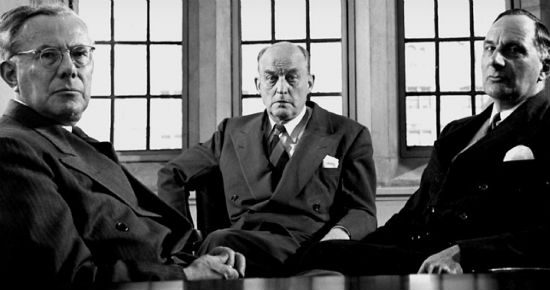Steve Thorngate addresses the popular slogan “It’s not a gun problem, it’s a sin problem.” He engages this with far more theological seriousness than any of the people parroting that slogan ever musters: “Why are the ‘good guys with guns’ so sure they’re good?”
This is quite good.
The folks glibly dismissing “a sin problem” as something afflicting only some imagined minority of Other People don’t seem to have any idea of what Paul, or Augustine, or Luther, or Niebuhr, or James Madison had to teach us about the pervasive implications of sin. Their slogan is about as meaningful as saying, “It’s not an absolute power problem, it’s an absolute corruption problem.”
Thorngate’s entire essay is worth reading, but let me highlight his conclusion here, which also again touches on the intersection between politics and eschatology — from a very different angle:
The American epidemic of gun violence is both a sin problem and a gun problem; the question is which problem we have the ability to solve. Sin is a power much stronger than us or our individual efforts. Defeating it is an ongoing cosmic project initiated by one greater than us who will complete it, but not on our timetable. Our task is to deal with the other problem: the physical instruments of death that sin has at its disposal. We can’t just keep them away from the bad people, because the bad people might well be us. We have to reduce our firepower.

If the above is an application of Lutheran theology at its best, here is Chris Turner last month discussing the application of pseudo-Calvinist theology at its worst:
In this country, to be poor is to be continually surrounded by shame. Shame from your community. From the people you encounter on a daily basis. From politicians. From complete strangers. Shame that, in taking in the world around you, you sometimes internalize within yourself. To be poor is to be scrutinized from all sides at all times — ”Where did you fail? What sort of moral corruption did you fall into, such that you are in this state? Why can’t you try harder? Why do we have to be continually reminded that you exist? We have been raised with this idea of an American Dream where anyone can get ahead; the fact that you are not is a personal affront to us.” This country is poisoned with a disease that is part prosperity gospel, part Calvinism, part rugged individualism. Members of historically vulnerable groups are the casualties.
On this point it is helpful, again, to return to Paul, and to the Gospels, the prophets, the books of Moses, to every single Ante-Nicene Christian who put pen to paper. On this point they are unanimous: Poverty is not shameful and not ever morally suspect. Wealth is.
For every Christian from Paul through Augustine — and most Christians for centuries thereafter, Turner’s questions were never to be directed at the poor. But those questions were mandatory for the wealthy: “Where did you fail? What sort of moral corruption did you fall into, such that you are in this state? Why can’t you try harder?”
Answer carefully — “the feet of them which have buried thy husband are at the door.”












